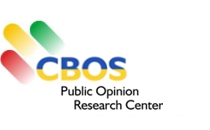| LATESTPUBLICATIONS Polish Public Opinion February 2023
 | War in Ukraine and the international reaction
|
 | Inflation and public finances
|
 | COVID-19 and flu: which is the bigger threat
|
 | Activities and experiences of Poles in 2022
|
"Opinions and Diagnoses"no 48
Young Poles in CBOS Surveys 1989–2021
no 49
Youth 2021
no 50
Secularisation in Poland
Reports | Social Moods in February
|
 | Trust in Politicians in February
|
 | Attitude to Government in February
|
 | Moods on the Job Market in March
|
 | Opinions about Wind Energy
|
 | Poles on the War in Ukraine One Year after Its Outbreak
|
 | Trust in Politicians in March
|
 | Attitude to Government in March
|
 | Poles on the Amendment of Electoral Code and Voting Facilities
|
 | Assessment of Joe Biden's Visit to Poland and Ukraine, Perception of Polish-American Relations and U.S. Influence on the World
|
 | Social Moods in March
|
|
|
How Poles Assess the Positions of Different Countries in Regard to the War in Ukraine
| The first anniversary of the outbreak of war in Ukraine was a convenient moment to ask for an evaluation of the positions of various countries in regard to this conflict. Countries in the survey have been limited to those playing a key role in supporting Ukraine, such as the USA or Poland, and those with controversial positions, such as Germany or Hungary.
| Poland itself was rated most highly (90% positive assessments), followed by the USA (82%) and the UK (65%). These were all countries that had actively supported Ukraine from the very first days of the invasion. When it came to the other countries, negative assessments outnumbered those that were positive. Hungary came out worst (54% negative votes against a mere 8% positive), with their resistance to sanctions against Russia markedly weakening their previously close relationship with Poland. Next worst was Germany (43% negative against 22% positive), often accused of indecisiveness, links with the Russians or offering Ukraine support incommensurate with Germany’s economic potential. In the case of the two remaining countries, France and Turkey, there was less of a difference in scale between negative and positive evaluations, with the neutral ‘neither good nor bad’ dominating (32% in the case of France and 31% Turkey).
| |
| More on this subject in the CBOS report.
| This ‘Current Events and Problems’ survey (394) was conducted using a mixed-mode procedure on a representative sample of named adult residents of Poland, randomly selected from the National Identity Number (PESEL) register. Respondents independently selected one of the following methods: Computer Assisted Personal Interview (CAPI); Computer Assisted Telephone Interview (CATI), respondents receiving researchers’ telephone numbers in an introductory letter from CBOS; Computer Assisted Web Interview (CAWI), where respondents filled in the online questionnaire independently, gaining access by means of a login and password provided in an introductory letter from CBOS. In all three cases the questionnaire had the same structure and comprised the same questions. The survey was carried out between 6–19 February 2023 inclusive on a sample of 982 people (58.4% using the CAPI method, 25.9% CATI and 15.7% CAWI). CBOS has been conducting statutory research using the above procedure since May 2020, stating in each case the percentage of personal, telephone and internet interviews.
|
|



